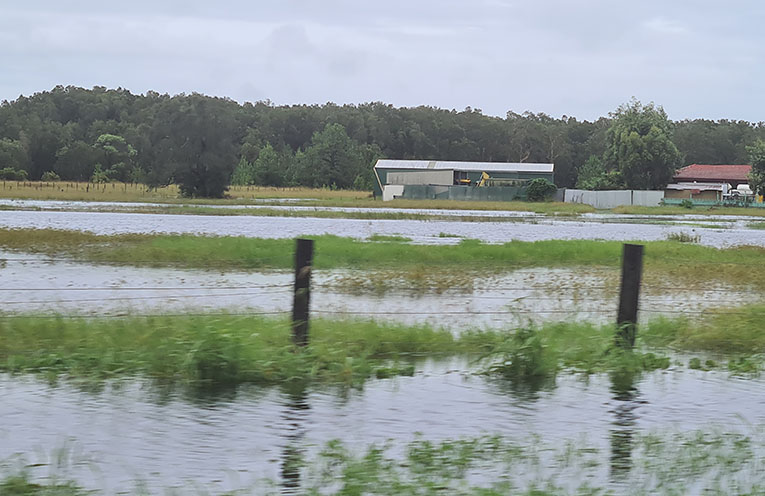
FLOOD DISASTERS, such as those currently unfolding in New South Wales and parts of Southern Queensland, are made more likely by climate change, say experts from the Climate Council.
“The intense rainfall and floods that have devastated NSW communities are taking place in an atmosphere made warmer and wetter by climate change, which is driven by the burning of coal, oil, and gas,” said Climate Council spokesperson Professor Will Steffen.
 Advertise with News of The Area today.
Advertise with News of The Area today.It’s worth it for your business.
Message us.
Phone us – (02) 4981 8882.
Email us – media@newsofthearea.com.au
“For many communities dealing with floods right now, this is the latest in a line of climate change-exacerbated extreme weather events they have faced, including drought, the Black Summer bushfires, and scorching heatwaves,” he added.
Global temperatures have risen 1.1°C since pre-industrial levels, and this has led to a 7 percent increase in water vapour in the atmosphere—increasing the likelihood of extreme downpours.
“Climate change is harming the health, safety, and livelihoods of Australians, racking up billions of dollars in economic losses, and damaging many of our unique ecosystems.
“It’s time for all levels of government and businesses to step up their climate action efforts to protect people, our environment and the economy,” said Professor Steffen.
“We must take decisive action this decade to bring climate change under control.
“Australia must get to net zero emissions well before 2040, and accelerate efforts to shift away from coal and gas to a fully renewables-powered economy,” he said.
Former Emergency Services Chiefs have also warned that climate change is worsening extreme rainfall and flood events such as the current situation in NSW and QLD, putting immense pressure on emergency response services and communities.
“In my 40-year career I have never seen rainfall and flooding as widespread as the events occurring across much of NSW and QLD,” said Jim Smith, former acting Commissioner, NSW State Emergency Services and Emergency Leaders for Climate Action (ELCA) member.
“Climate change is increasing the intensity and severity of extreme rainfall and flood events, and we are seeing the devastating consequences of this on people’s safety, homes, and livelihoods,” he said.
“It has long been the norm for states to help each other by sending personnel and resources across borders during emergencies, but the simultaneous extreme flooding in NSW and QLD shows how climate change threatens this practice,” said Mr Smith.
Major General (Retd) Peter Dunn, former Commissioner, ACT Emergency Services Authority, added, “The Royal Commission into National Natural Disaster Arrangements outlined 80 recommendations to improve Australia’s disaster response and preparedness, but the Federal Government has shown resistance at fully accepting and implementing all 80 of the recommendations.
“Australians are on the frontline of back-to-back extreme weather events fuelled by climate change, and cannot afford the growing costs of inaction,” said Mr Dunn.
Those impacted by the recent flood event may be eligible for government assistance, you can find out more at www.servicesaustralia.gov.au.
By Marian SAMPSON
